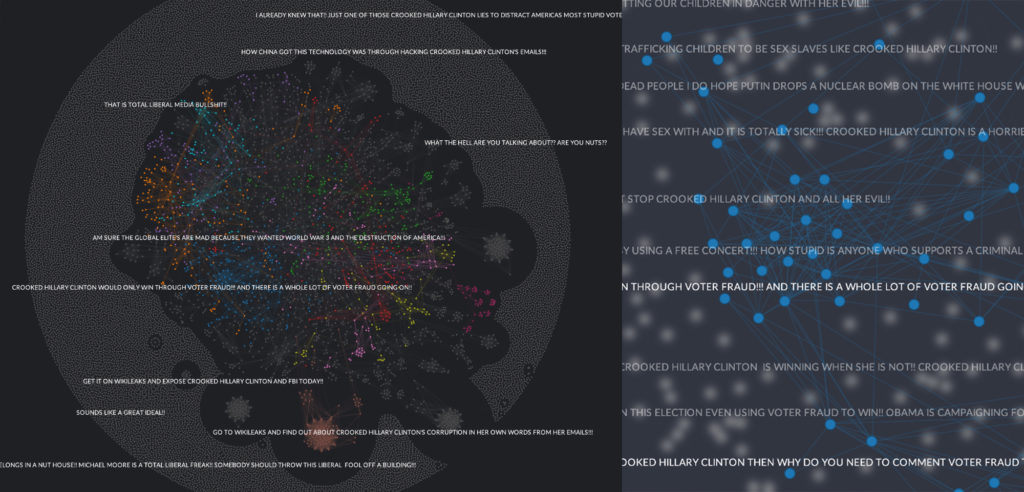FOIA Machine

Python, Django (2012 – )
In 2012, I worked to develop a web application that would empower journalists to access public records through an automated process, dubbed the FOIA Machine. The project helps journalists to write, file and track public records requests to various governmental and public agencies in the United States. Thanks to Kickstarter supporters, Knight Foundation Prototype Fund support, Investigative Reporters and Editors, the Donald W. Reynolds Journalism Institute, FOIA Machine beta version was deployed in 2013, and the project became an official tool for investigative reporters used by IRE and National Freedom of Information Coalition (NFOIC) members. Since then, nearly 2,000 journalists have become active users with hundreds of FOIA requests sent on a weekly basis.
Github repo: https://github.com/padejski/foiamachine
Click here to find out more about FOIA Machine >>>
Veritza
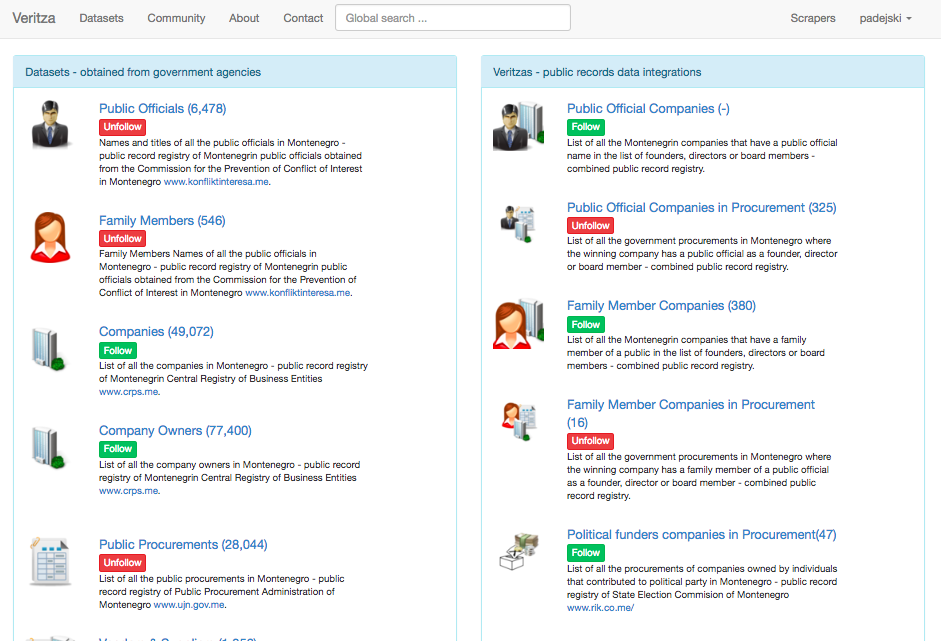
Python, Django, Web scraping (2014 – 2016)
Veritza is a prototype of a tool for automated data collection of public records. The tool experimented with the idea to automate the discovery of story leads from public records by scraping, ingesting and aggregating data, and analyzing it for patterns and anomalies, with a goal to help reporters more easily find story leads from public records. The project focused on a selected list of public records and scenarios that have already proven themselves to be practical in identifying story leads on corruption and other wrongdoings.
URL: http://veritza.herokuapp.com/
Github repo: https://github.com/padejski/veritzaproto
Click here to find out more about Veritza >>>
Offshore Leaks
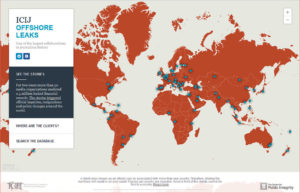
Data reporting and analysis, investigative reporting, (2012 – 2013)
Core member of the Offshore Leaks investigation, the biggest collaborative team of journalists up 2015, assembled to sift through 260 gigabytes of unstructured data – 2.5 millions of secret records from 10 tax havens– (documents, emails, spreadsheets), an award-winning project by ICIJ. The data needed to be interrogated, verified and checked against multiple sources. Starting from the leaked documents, we filed numerous FOIA requests to obtain additional documentation, and combined it with court records and corporate filings, and interviewed a number of sources to produce stories that had a profound impact.
Click here to find out more about Offshore Leaks >>>
Alabama Media Group Projects
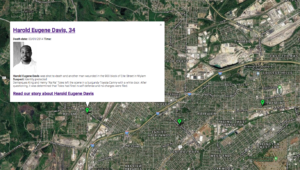
Data analysis, Fusion Tables (2014)
In the summer of 2014, I trained AL.com reporters in developing data-driven stories and exploring ways newsrooms can transform local beat coverage while tackling larger investigative and enterprise projects. After the training, we worked on a range of accountability data-driven stories including mapping economic blight, auditing business incentives in Alabama, bridges inspections, defense public procurement, transportation, and criminal justice.
Reporters of The Birmingham News (Advance Local) wanted to map homicides in the city of Birmingham when I was training them in 2014. But the Birmingham Police Department was clearly against sharing spreadsheets with the press. Nevertheless, journalists have covered police press briefings for years and frequently had data in their stories. Consequently, we worked to mine these stories and extract data points such as names, time logs, dates, and locations, and out of these produced a database and map. This approach gave them more insights into troubled neighborhoods of Birmingham and sparked ideas for more stories.
OCCRP – People of Interest
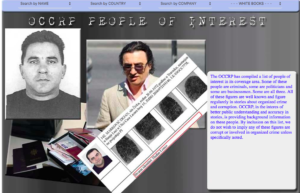
Data reporting and analysis, investigative reporting (2010)
The Organized Crime and Corruption Reporting Project has been a leader in applying technology and data journalism concepts to investigative journalism since it was started in 2006, especially with the journalism tool called Investigative Dashboard (ID). As the predecessor of ID, in 2010 we worked to create the biggest online repository of stories and documents about people of interest in the region of the Balkans and Eastern Europe. Some of these individuals were criminals, some politicians, and some businessmen. Some were all three. All of these figures were well known, regularly showing up in stories about organized crime and corruption. We built this web resource to provide background information on these people in the interest of better public understanding and accuracy in journalism stories. By including individuals on this list we did not imply any of these figures are corrupt or involved in an organized crime unless specifically noted with the court documents.
CINS projects
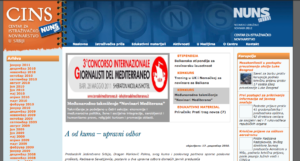
Managing, editing, data reporting and analysis, investigative reporting (2006-2011)
Through my work at the Center for Investigative Reporting in Serbia as director, editor, and journalist, I worked on a number of data/investigative stories and projects including government accountability and political corruption, campaign financing. I covered tobacco and drug smuggling industry, a background of the assassination of the first democratically elected prime minister of Serbia Zoran Djindjic, media control, whistleblowers protection, wastewater water pollution, Belgrade market abuses, etc. Some examples include abuses in the privatization process in Serbia, involving the then-prime minister of Serbia Mirko Cvetkovic and his hidden management consulting business. Another example is a comprehensive database of budget and procurement data for 30 local governments in Serbia, using sunshine laws, calling it the Investigating Local Governments project.
Click here to find out more about CINS projects >>>
The Balkan Heroine Route, “L’Europe Orientale entre en Guerre contre ses mafias“, Le Soir, Data reporting, investigative reporting, interactive, data visualization (2011)
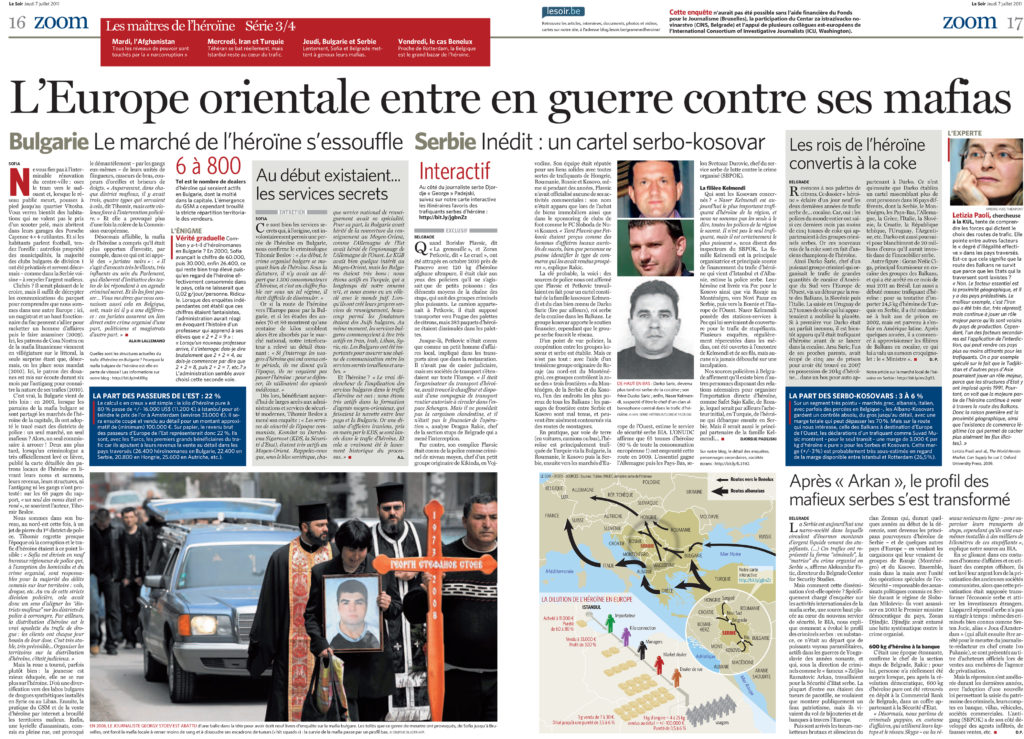
Russian Gazprom Investigation: Serbia and Gazprom, from Milosevic to today, Data reporting, Pescanik, E-novine & Republika, 2010
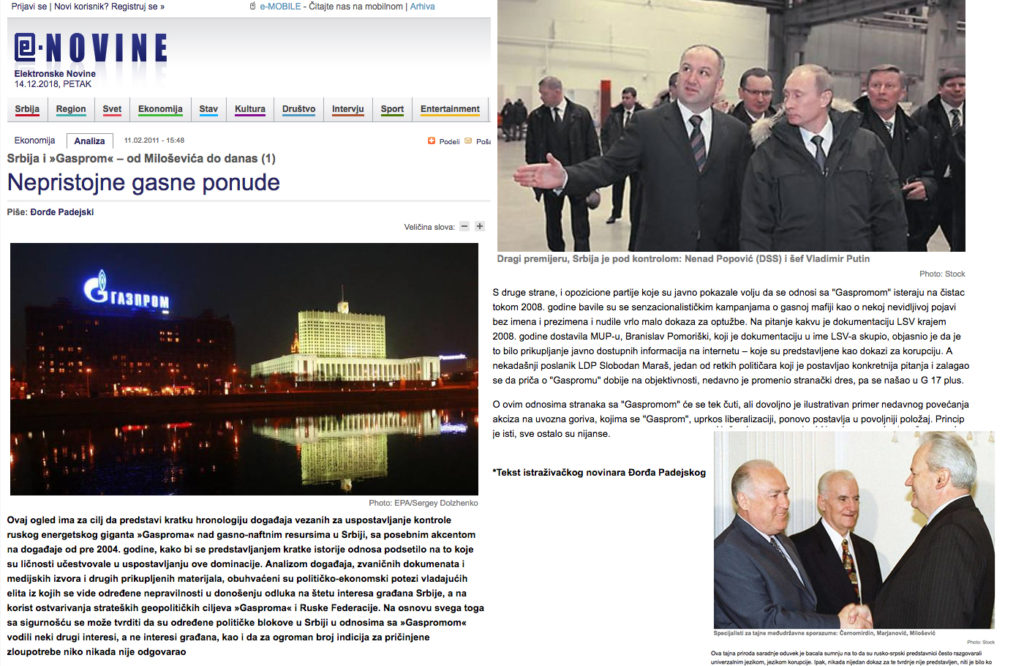
Open hunt on protected species: Bird mafia in the Balkans, MC Online, Newspaper Zrenjanin, Investigative reporting, Data reporting, (2005)
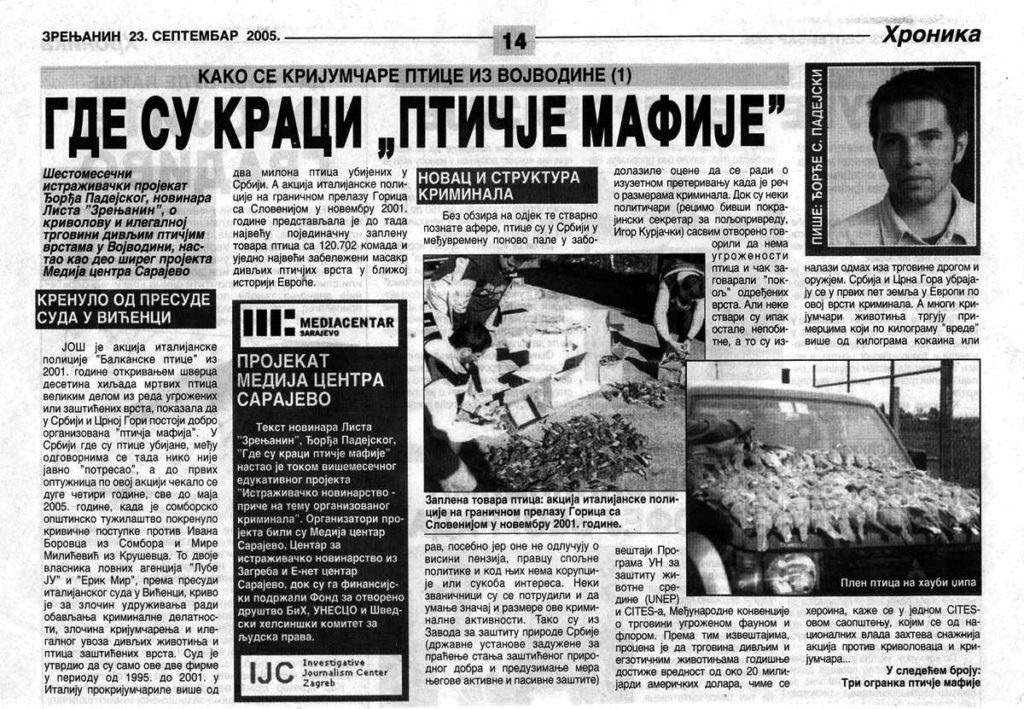
Other examples:
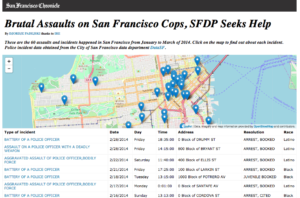 A simple news app (Python, Javascript, Flask) used as a mockup for a consultancy work with the San Francisco Chronicle. Mapping three months of police incidents in San Francisco involving assaults on police officers – click here for the live app >>>
A simple news app (Python, Javascript, Flask) used as a mockup for a consultancy work with the San Francisco Chronicle. Mapping three months of police incidents in San Francisco involving assaults on police officers – click here for the live app >>>
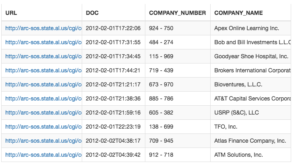 A web scraper for the companies registered in Alabama for the Alabama Media projects:
A web scraper for the companies registered in Alabama for the Alabama Media projects:
https://github.com/padejski/us_al_sos_cmp_info
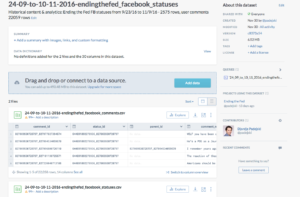 A class example of Facebook page statuses and comments scraper (Python, Data analysis) and nodes visualization (Graphnext). The page “Ending the Fed” was taken down by Facebook in 2017, as it was part of the Russian disinformation campaign, so this dataset can be used for any further analysis. A graph of a cluster of nodes has shown an excessive automation in comments posts.
A class example of Facebook page statuses and comments scraper (Python, Data analysis) and nodes visualization (Graphnext). The page “Ending the Fed” was taken down by Facebook in 2017, as it was part of the Russian disinformation campaign, so this dataset can be used for any further analysis. A graph of a cluster of nodes has shown an excessive automation in comments posts.
